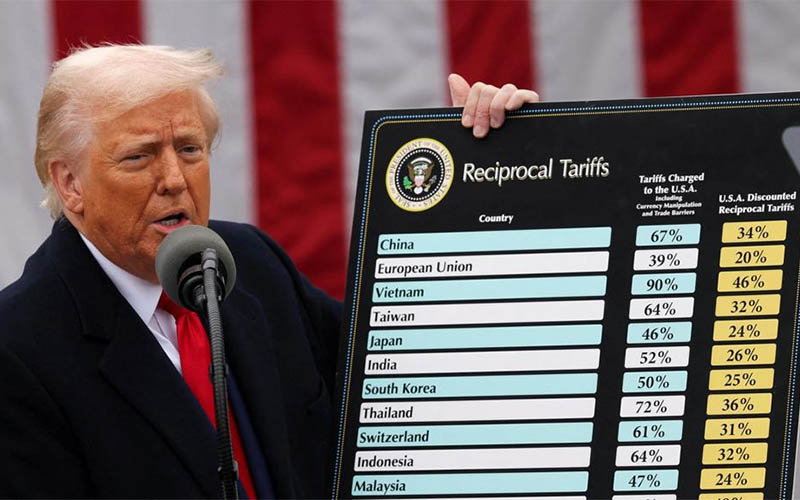Pulwama:The reciprocal tariffs imposed by U.S. President Donald Trump, which affect approximately 180 countries worldwide, are expected to significantly disrupt the export business in Jammu and Kashmir. On April 2, 2025, Trump announced a 26% tariff on Indian exports, a move that is reportedly half of the tariffs imposed on U.S. imports.
This decision is likely to have wide-ranging effects on several industries in Kashmir, particularly the handicraft sector, which has been a key pillar of the region’s economy.
President of the Kashmir Chamber of Commerce and Industries (KCCI), Javid Ahmad Tenga, voiced his concerns to Rising Kashmir, stating that the retaliatory tariffs would undoubtedly impact Kashmir’s exports.
“The handicraft industry will be hit hard, with products such as shawls, carpets, and other traditional items becoming more expensive in the U.S. market,” Tenga explained. He added that the increased costs would create significant challenges for Kashmiri exporters, many of whom rely heavily on the U.S. market for their sales.
Tenga also pointed out that the textile industry in the region is likely to feel the pressure of these tariffs, with higher costs of production making it difficult to maintain competitiveness in international markets.
While negotiations between India and the U.S. over a potential bilateral trade agreement could result in a reduction of these tariffs in the future, the immediate concerns are growing among local industries. In particular, Kashmiri farmers are worried about the possible lowering of import duties on U.S. agricultural products entering India.
Mohammad Ashraf Wani, an apple grower and representative of the farming community in Shopian, expressed concerns over the potential tariff cuts on American apples, almonds, and walnuts. He warned that such a move could have severe consequences for Kashmir’s horticulture industry, which supports around 3.5 million people.
“Reducing tariffs on agricultural imports will flood the Indian market with American apples,” he said, “High-quality Washington apples, known globally for their superior quality, will become more competitive, making it harder for Kashmiri apples to sustain their market share.”
He added that the local farming community plans to raise their concerns with the government in the coming days.
Javid Ahmad Tenga noted that it is still too early to predict the full impact of these tariffs.
However, he urged the government to consider the interests of all stakeholders before making any final call on the matter.
Experts believe that Trump’s reciprocal tariffs may have a limited impact on Indian businesses overall.
However, sectors with high exposure to the U.S. market are expected to feel the pressure, according to experts. Industries likely to be affected include IT, automobiles, pharmaceuticals, iron and steel, gems and jewellery, and refined petroleum products.
Trump’s reciprocal tariffs to impact J&K ‘s handicraft industry

Leave a Comment Leave a Comment







